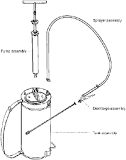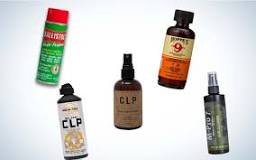When it comes to using Roundup, farmers typically apply it at concentrations ranging from 0.67 to 5.0 liters per hectare, depending on the specific crop and situation. This variability is influenced by factors like the type of weed, growth stage, and the intended use of the herbicide.
Understanding Roundup Concentrations
General Application Rates
- Pre-Harvest: For crops like cereals and canola, farmers often use around 0.67 L/ac when applying before harvest.
- Post-Planting: For certain crops, a higher concentration of up to 1.2 L/ac can be used after planting but before emergence.
- Grassland Management: Here, concentrations can go up to 4.8 L/ac just before harvest or grazing.
Why Such Variability?
Farmers adjust their Roundup concentrations based on:
- Crop Type: Different crops have specific tolerance levels for glyphosate.
- Weed Pressure: Higher weed infestations may require stronger applications.
- Environmental Conditions: Weather can impact how effective the herbicide will be.
Application Techniques
Farmers often use various methods for applying Roundup, including:
- Sprayers: Common for large fields, ensuring even coverage.
- Drones: Emerging technology that could allow for more precise applications in the future.
Safety and Regulations
Farmers are advised to follow strict guidelines when using Roundup to minimize risks to human health and the environment. This includes:
- Ensuring that glyphosate is applied only when necessary.
- Following label instructions for maximum doses and application timing.
FAQ
Is Roundup safe for crops?
Yes, when used correctly, Roundup is considered safe for many crops, especially those genetically engineered to be resistant to glyphosate. However, misuse can lead to residue issues in harvested products.
Can I use Roundup in my garden?
While homeowners can use Roundup, it’s crucial to follow label instructions carefully and consider environmental impacts. Using it responsibly can help minimize harm to surrounding plants and wildlife.
What are the concerns about glyphosate?
There are ongoing debates about glyphosate’s safety, with some studies linking it to health risks. Farmers are encouraged to stay informed and consider alternative weed management strategies if concerned.
In summary, understanding the concentrations and application methods of Roundup is key for farmers aiming to manage weeds effectively while adhering to safety regulations. As technology evolves, so too might the strategies employed in agricultural practices.







